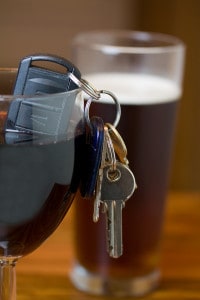 Most of the time, a first-offense DUI is enough for anyone to swear off drinking and driving ever again. There are stiff financial penalties, time in DUI classes, anxiety over facing a judge in court, plus realizing the danger posed by being irresponsible. That all adds up to a powerful lesson on not drinking and driving. Then, there are those who just don’t seem to learn that drinking and driving is dangerous and end up with multiple DUI convictions. In Colorado, a person who has multiple DUI and/or DWAI offenses can be labeled a “habitual traffic offender,” and will have to face an even longer road to recovery: a mandatory four year ignition interlock requirement.
Most of the time, a first-offense DUI is enough for anyone to swear off drinking and driving ever again. There are stiff financial penalties, time in DUI classes, anxiety over facing a judge in court, plus realizing the danger posed by being irresponsible. That all adds up to a powerful lesson on not drinking and driving. Then, there are those who just don’t seem to learn that drinking and driving is dangerous and end up with multiple DUI convictions. In Colorado, a person who has multiple DUI and/or DWAI offenses can be labeled a “habitual traffic offender,” and will have to face an even longer road to recovery: a mandatory four year ignition interlock requirement.
Colorado requires an ignition interlock device for all DUI offenders, starting at an eight month minimum for a first offense. After that, the time requirement grows with each additional offense, leading to a habitual offender status after “three strikes.” As a habitual traffic offender in Colorado, your history of criminal behavior works against any leniency from the court. The state believes you should be treated more harshly, as the original DUI consequences did not cause you to stop drinking and driving, even after the third offense.
Once you reach a habitual traffic offender status, you have already had a collective ignition interlock device requirement for almost five years. After adding an additional four-year ignition interlock requirement, you have almost a full decade of your life devoted to the device, and to remaining sober when driving.
In Colorado, when you develop a tradition of drinking and driving, you will be required to use an ignition interlock, or you will not be allowed to drive. At that point, a device is more trusted than your ability to make responsible choices when drinking, and you can look forward to many years of a successful relationship with driving sober.

Leave a Reply
You must be logged in to post a comment.